I’ve just spent the better part of a month in London, and many of you have asked what it’s “really like” on the ground. From a distance, the headlines are relentless: illegal immigration, spiralling crime, a migrant crisis that feels out of control. While I was here, Tommy Robinson led a massive protest march through central London and many asked me if I would attend. I would have done if it were not on the same day as my sister’s wedding. So instead I was in Kent, done up to the nines and highly intoxicated.

Put a finger down if you’ve screamed along to Whitney Houston tunes played by a solo saxophonist in a country pub in Kent.

The wedding was at The Glasshouse and Buttery in Seven Oaks.
I was unsure of what to expect. I had been told that London is changed. That in the eight years or so since I was last in the city it is unrecognisable. This scared me to be honest. London was the world’s first big city. The centre of the Commonwealth and empirical power. Surely if this centre of Western brilliance has fallen then the jig is already up. Wave the white flag, get to your knees, and pray to Mecca.
When I arrived back in the city, I headed to Tooting in the southwest, where my sister lives and where we would be staying in an AirBnB for the month. Jetlagged and confused, I got off the Tube one stop too late (Tooting Broadway instead of Tooting Bec) and then heaved a 23kg suitcase (and a heavy carry-on bag I was lucky to get away with) for fifteen minutes in the wrong direction before having to backtrack. This comedy of errors gave me a thorough first look at a neighbourhood I hadn’t spent time in before.
What struck me immediately was how foreign it felt. I could have been in any Middle Eastern or South Asian city, but it didn’t feel like London. Mosques and Islamic centres and stores lined the main street, most shops were Pakistani or Afghani, and many people were in traditional Islamic dress. My knee-jerk reaction was to think: good grief, the stories are true, maybe London really has been “taken over.”
But over the weeks that followed, I realised what I was seeing was simply one enclave of many. London is built on enclaves. Tooting is heavily Muslim; Brixton is proudly Caribbean; Clapham is crawling with Aussies and Kiwis; Golders Green is Jewish; and Chinatown is, well, Chinatown. London is a mosaic of micro-communities, and it always has been although previously divisions were along class and industry lines rather than cultural.

Waiting in Chinatown for my bubble tea.
Multiculturalism is nothing new in London. This city has absorbed wave after wave of outsiders for centuries. Each brought their food, music, and energy. The difference today is that migration is larger in scale and less selective, and that does create tensions. The migrant crisis is characterised by the fact it is largely fighting-age men showing up in the boats from France, the women and children bizarrely left behind in peril in the countries the men have fled.
But this hasn’t erased what makes London great. London is still London. Chaotic, multicultural, mad, magnificent. The claims that it has “fallen” are, in my view, grossly exaggerated. London has not collapsed, but there is no doubt it is under strain.
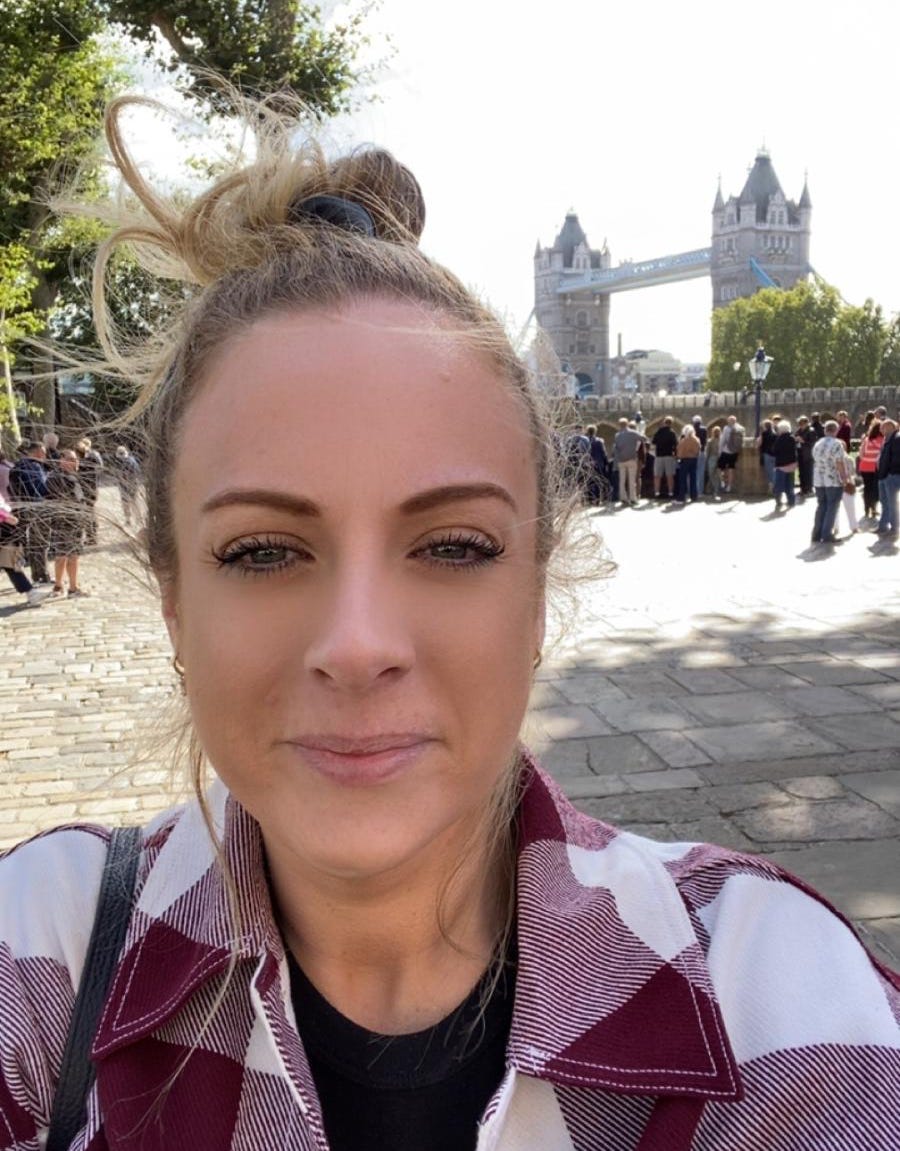
Tower Bridge as I lined up to visit the Tower of London.
Switch on the British news and immigration is the biggest story in town. I don’t think there was a single day when the news wasn’t reporting on an illegal immigrant or dubiously-legal immigrant being arrested or convicted of sexual assault. The dam has well and truly burst and all the inconvenient statistics around the staggering prevalence of asylum seekers in sexual violence statistics is now being reported on or framed up as evidence of the far-right. Depends if you watch GB News or read the Guardian.
Switch off the news, however, and all of it is easily forgotten. On the ground, people are just getting on with their lives. Most people are not politically engaged and have enough of their own problems to be focused on. Not once was the matter raised with me in small talk. The one conversation I overheard about Reform UK was in Bath, not London. One man said to another “I bet you’re a Reform voter and all” in what was clearly meant to be an insult. The response was: “too right I am!”
The most political conversation I encountered was in an Uber the day the Israel Defence Force killed a bunch of Hamas terrorists in Qatar. The Middle Eastern driver was incensed and raged against Israel completely unprovoked. My opinions on the matter are diametrically opposite to his, but sometimes one must be pragmatic about their safety. In this case I pled ignorance and claimed to not be political.
I spent a bit of time with friends of my sister and her now-husband while in London. A lovely group of young professionals (in our thirties still counts as young!), most married, some with children on the way. They are a mix of native Brits with a few Kiwis, Australians, and other ex-pats mixed in. Conversations centred on my sister’s wedding, house prices in London, house prices in New Zealand, house prices in Sydney, fertility, raising children in London, the alternatives to raising children in London, and tormenting the poor guy (Kiwi) who had too much to drink and fell asleep at the wedding reception. It was all normal and positive, even when discussing the challenges of economies and personal circumstances. No one raised politics and I was on holiday and certainly not going to lob that grenade in. Though I am not entirely certain my sister didn’t warn them in advance that I am a political beast. It is a fair call to say I should come with a warning.
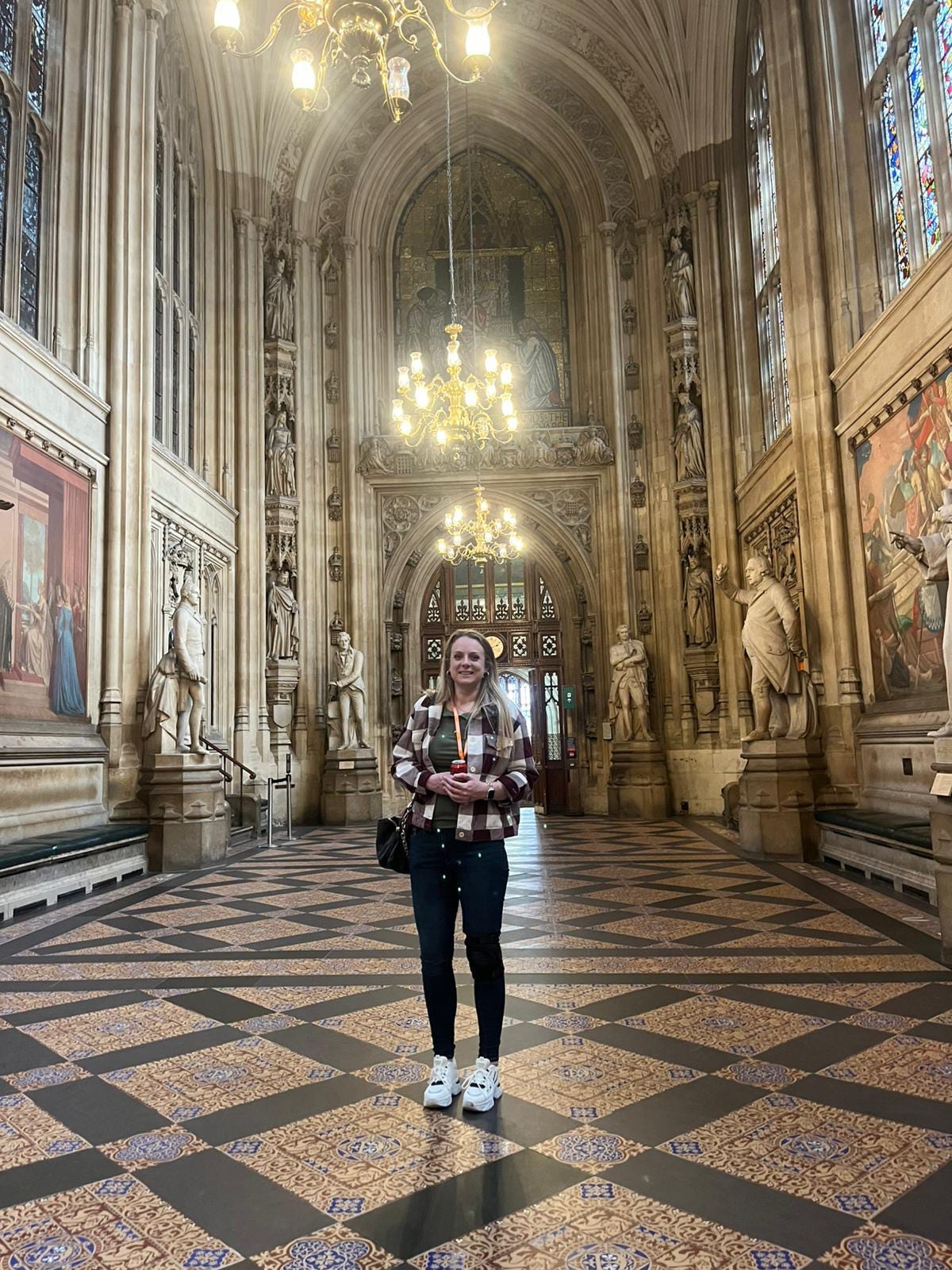
I was lucky enough to get a full tour of Parliament from terf extraordinaire Venice Allan including a visit to Rosie Duffield’s office but sadly she was not in.
What I am getting at is that the politics of immigration was not hovering over any of the pub gardens we sat in for hours on end.
That said, I am not disputing that the issue exists. The statistics on crime and the endless reports of violence, particularly against women, are damning. It is reckless to import large numbers of men from cultures that do not share British values or even basic respect for women. Those who want to wave this away are burying their heads in the sand. Britain does have a migrant problem, and it will need to be addressed decisively and soon.
The political class has work to do. It is a problem that will get worse and will be forced into the lives of Londoners eventually if not dealt with. But that doesn’t mean the city is dead. It doesn’t mean that it even feels like an existential crisis for those who live there.
When I left the capital and spent time in Kent and the Cotswolds, I noticed a distinct shift in mood. As I say, London is noisy, diverse, and always moving; the sheer volume of people and activity tends to drown out political undercurrents. But in the countryside and smaller towns, the mood felt calmer on the surface yet more politically charged underneath. Union Jacks and St George’s Crosses flew proudly from homes, bunting strung across porches, flags hung in windows. Ordinary people signalling in the most visible way they could that they were fed up, not just with Westminster, but with the direction of the country.
This patriotism wasn’t the slick, curated kind you see on official occasions. It was more raw and grassroots, like an assertion of identity in the face of a government that too often seems embarrassed by its own people.
Perhaps outside of the capital fears of being branded “racist” or “reactionary” aren’t felt as acutely. Perhaps the impact of the migrant crisis is felt more strongly in smaller places with less resources. Parents worried about schools straining under the pressure of new arrivals. Locals complained about housing being snapped up while young British families are priced out. Women furious that they are no longer safe to move about their home town without harassment or being accosted. And there is palpable anger at Westminster’s continued willingness to spend billions of taxpayer pounds on people who show up in the country illegally while its own people struggle for housing, jobs, and healthcare.
Unlike in London, where you can get lost in the chaos and imagine that politics is something happening somewhere else, in the regions the frustration is closer to the surface. It is less dramatic than a march through Whitehall, but no less political.
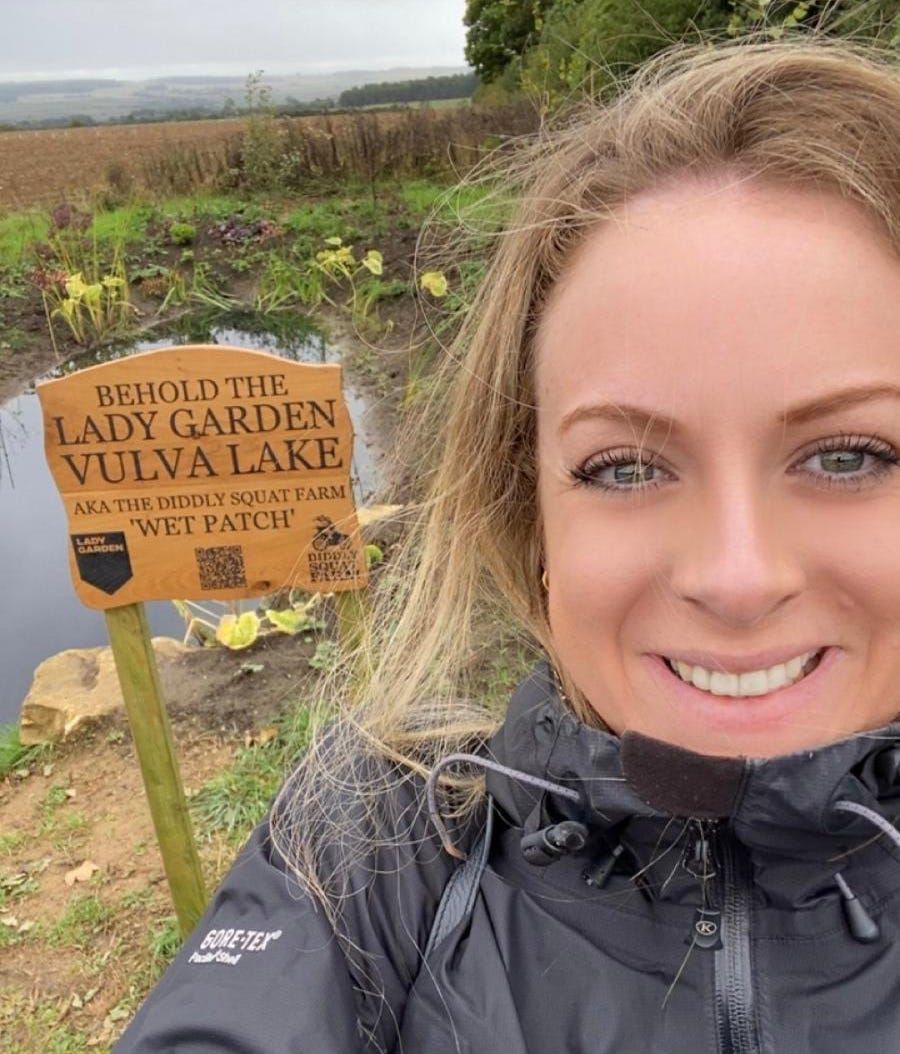
Visited Diddly Squat in the Cotswolds (Jeremy' Clarkson’s Farm) and had to have a photo with this fantastic sign.
I came away with the sense that if the government continues to ignore these voices, it is outside of London where the backlash will be sharpest. People in the countryside and smaller towns may not have the numbers of the capital, but they have a deep loyalty to Britain, a pride in their culture, and less patience for politicians who shrug at mass immigration while lecturing them about tolerance.
Something else that was mentioned to me a lot before my trip was safety. London has a reputation, some of it deserved, some of it exaggerated, for being a hotspot for petty crime. Tourists are constantly warned about pickpockets on the Tube, scams in busy areas, and bag-snatchers operating in crowded markets or outside stations. Friends back home asked me more than once if I felt safe moving around such a massive city, especially given the headlines about crime linked to gangs and migration. My sister warned those of us arriving from New Zealand to be vigilant when on our phones in public as they can be snatched.
London has its crime problems. You’d be naive to walk around central London as if it were a sleepy village, waving your iPhone about and leaving your handbag unattended. At certain train stations, especially late at night, you’ll notice groups loitering who make you hold your bag closer. Pickpocketing is a real issue; Oxford Street, Leicester Square, and Covent Garden are classic spots for it. As my sister warned, the police even run awareness campaigns reminding people not to have their phones out on the edge of the pavement because they can be snatched by someone on a bike.
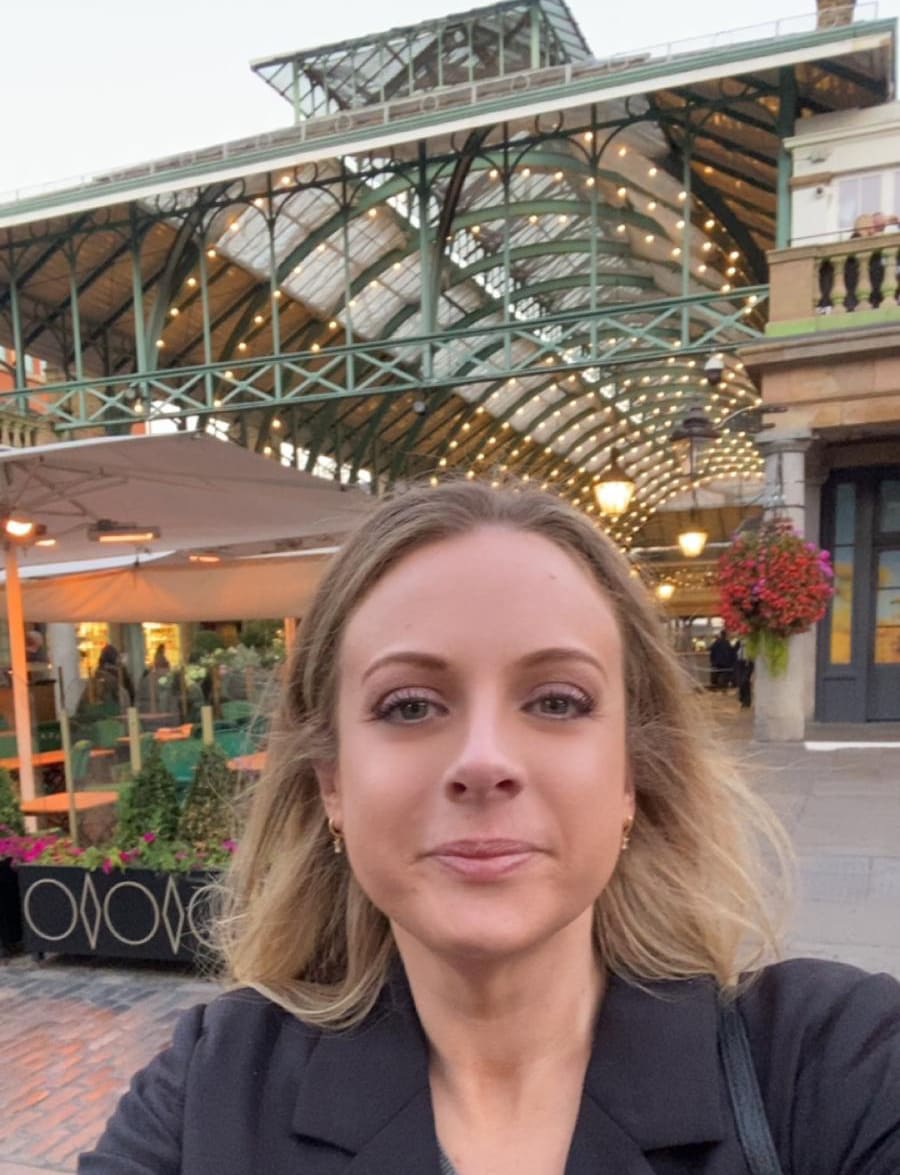
Covent Garden
But this past month I felt no less safe in London than I do in Auckland’s city centre. In fact, I’d argue that the vibe is strikingly similar. Auckland has its share of theft, drunk and disorderly behaviour, and people you’d rather cross the street to avoid. Poverty was visible in similar ways and anti-social behaviour was predominantly male and young, as in any city. London is just a bigger scale version of the same thing.
When you pay attention, exercise common sense, and avoid obvious risks, London doesn’t feel hostile or frightening. It feels like a city where millions of people are going about their lives, commuting, shopping, heading to the theatre, eating out, working late. The warnings are worth heeding, but they shouldn’t be overblown into paranoia. London felt no more dangerous than home.
Make no mistake, London has not fallen. Stroll across Westminster Bridge and take in the Houses of Parliament and Big Ben, spend a night at the theatre, or walk through the markets in Camden you are reminded of why London is still the greatest city on earth. London is not finished; not even close. It is spectacular, vibrant, beautiful, and worth defending.
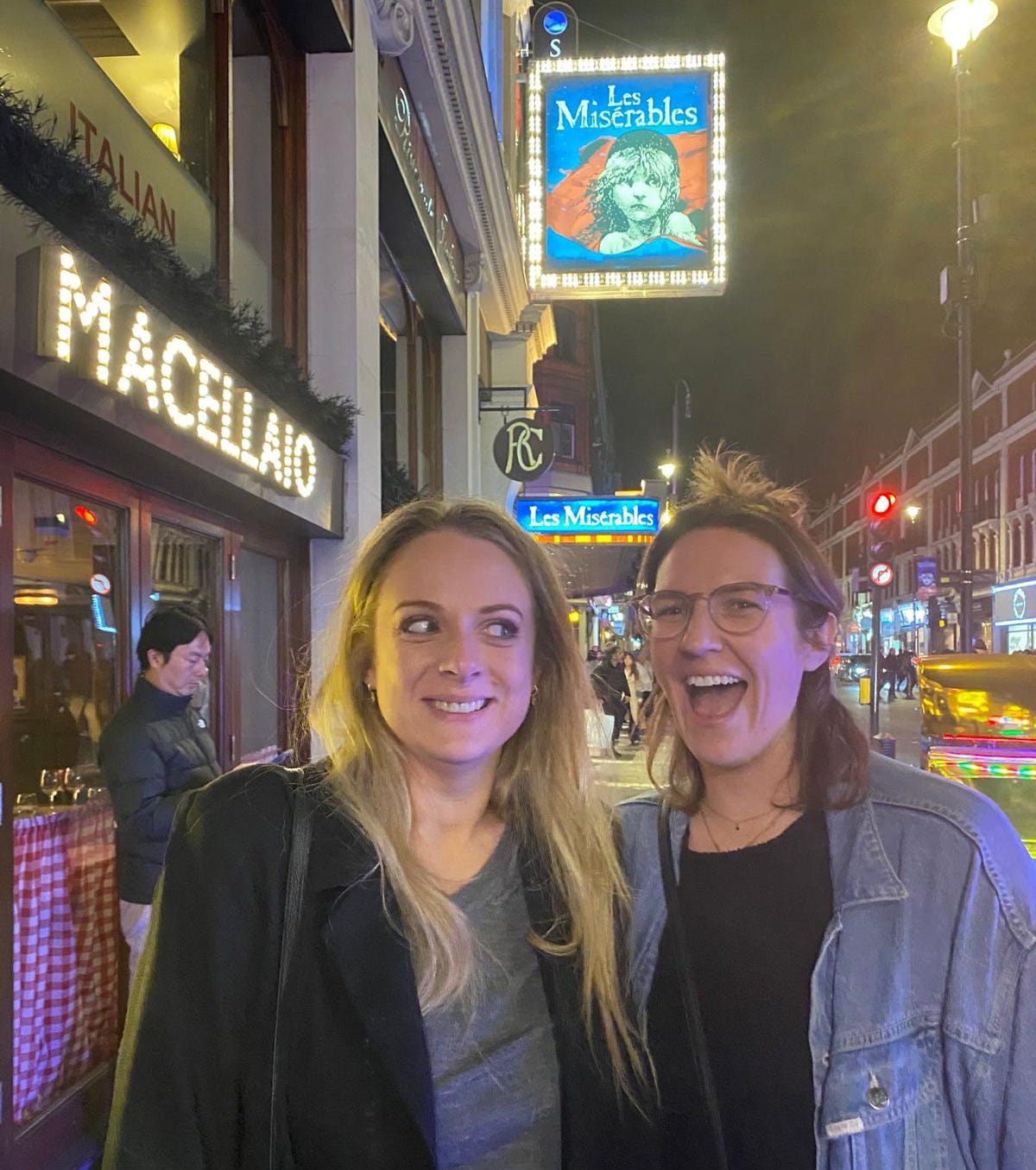
After seeing Les Miserables.
Britain does face a migrant crisis, and to deny it would be dishonest. The numbers crossing the Channel illegally are staggering, and the political class has consistently failed to protect its borders or enforce its own laws. Communities are under pressure, services are stretched, and ordinary people feel as though their concerns are dismissed as backward or bigoted the moment they raise them. This neglect has created real anger and rightly so.
Yet despite the chaos inflicted from above, London itself endures. It is not the politicians or bureaucrats who make the city what it is, but Londoners themselves. They adapt, as they always have. It is a city that has survived the Blitz, recessions, terrorism, and social upheaval. It bends, but it does not break.
Walking through its streets, you are reminded that London’s spirit is bigger than the failures of Westminster. The history, the culture, the humour of its people, all of it persists, even when the political leadership seems intent on squandering it. The city is under pressure, but its resilience is unmistakable.
For me, this trip was a reminder of why London is so spectacular and why I love it so much. I may live in New Zealand now, and Auckland is home, but London will always be my city of birth, the place that shaped my family and my identity. Each time I return, I am struck by the sheer scale and energy of it, the way the old and the new sit side by side: Roman walls next to glass skyscrapers, Victorian terraces beside hipster coffee shops.
London is far from perfect. It frustrates, it overwhelms, it is unwieldy. But it is also unmatched. There is no city on earth that carries the same weight of history, the same global presence, or the same capacity to reinvent itself while staying recognisably London.
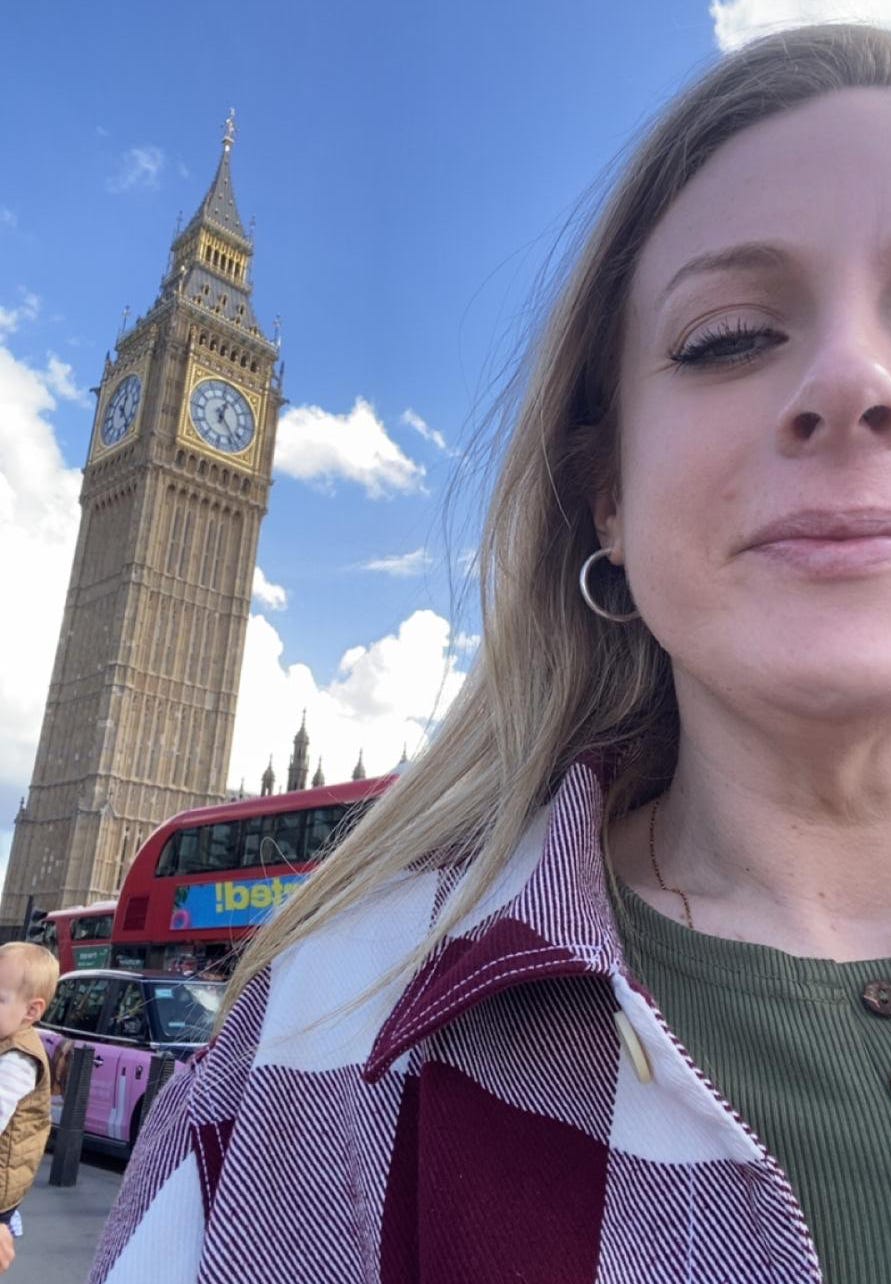
Some bell tower.
I leave Britain (again) not only in awe of London, but convinced it is worth fighting for. It would be easy to throw up our hands, to believe the doomsayers who claim London has fallen for good. But that would be a betrayal of the city itself. London is too great to be surrendered to political cowardice and demographic mismanagement.
Solving the challenges London faces is not about retreating, it is about preserving. The city of Shakespeare and Churchill, of punk rock and Parliament, deserves nothing less. For all its chaos and contradictions, London remains one of the wonders of the world. I wish everyone had the opportunity to visit it at least once.
Ani O'Brien comes from a digital marketing background, she has been heavily involved in women's rights advocacy and is a founding council member of the Free Speech Union. This article was originally published on Ani's Substack Site and is published here with kind permission.


7 comments:
I think some of the stuff online about civil war is just clickbait. Westminster will continue as a democracy long after New Zealand has succumbed to being a China aligned tribal fractured state of being.
Ani as always a good read from an astute observer.. if she sent the taxi driver selected Ani writings he would probably never speak to a passenger again.
"When I left the capital and spent time in Kent and the Cotswolds, I noticed a distinct shift in mood. As I say, London is noisy, diverse, and always moving; the sheer volume of people and activity tends to drown out political undercurrents. But in the countryside and smaller towns, the mood felt calmer on the surface yet more politically charged underneath. Union Jacks and St George’s Crosses flew proudly from homes, bunting strung across porches, flags hung in windows. Ordinary people signalling in the most visible way they could that they were fed up, not just with Westminster, but with the direction of the country."
So, leaving the multicultural, multiracial chaos of a now minority-White London and heading out into the calm of heavily White Kent and the Cotswolds was to experience a world of difference, simply because the people are different?
Case closed: despite the author's very conscious attempts to assure us that Britain hasn't fallen into abject diversity hell, this casual paragraph attests the opposite.
"Communities are under pressure, services are stretched, and ordinary people feel as though their concerns are dismissed as backward or bigoted the moment they raise them. This neglect has created real anger and rightly so."
In a similar vein to my previous comment, throughout the article, Ani gives her own experience (essentially, "I wasn't personally mugged by an African teen, thus no real issues to see") as evidence that, notwithstanding some problems, all is basically well in London.
She also writes in a more general sense (as in the quote above) as to the overall situation in London, and Britain more generally, which contradicts her accounts of her personal experiences.
Britain is at the point where, due to the policy of radical demographic change advanced by both Labour and Tory governments, people don't care as much about being called racist bigots, because the deleterious effects of their not being racist and bigoted enough for the last 30 years are unignorable.
i visited southern England about 10 years ago. Was like the NZ of my youth in the 1950s. Very, very comforting. Did not suffer even one haka.
Pleased to read that Kiwi's in London - "still get pissed, plastered and pass out". Nothing has changed.
Brixton - does it still have the crime issues I witnessed back in the early 1970's - then was considered a "no-go" area for any white person.
I ommitted to add "or cut their heads off". Ani has a straightforward writing style which seems to be largely a lost art today. Easily understood in a once through reading.
Post a Comment
Thank you for joining the discussion. Breaking Views welcomes respectful contributions that enrich the debate. Please ensure your comments are not defamatory, derogatory or disruptive. We appreciate your cooperation.